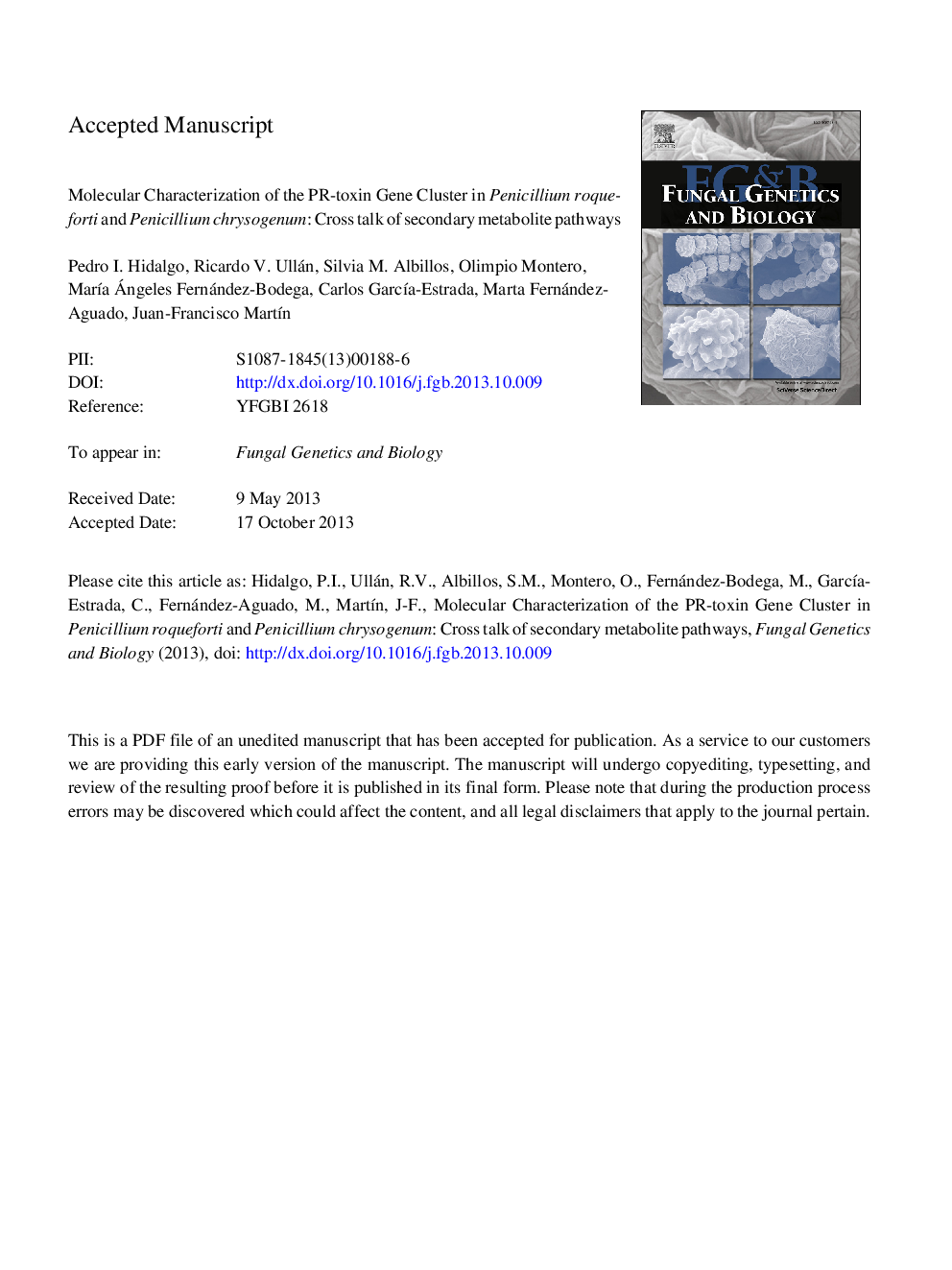| Article ID | Journal | Published Year | Pages | File Type |
|---|---|---|---|---|
| 8470902 | Fungal Genetics and Biology | 2014 | 42 Pages |
Abstract
The PR-toxin is a potent mycotoxin produced by Penicillium roqueforti in moulded grains and grass silages and may contaminate blue-veined cheese. The PR-toxin derives from the 15 carbon atoms sesquiterpene aristolochene formed by the aristolochene synthase (encoded by ari1). We have cloned and sequenced a four gene cluster that includes the ari1 gene from P. roqueforti. Gene silencing of each of the four genes (named prx1 to prx4) resulted in a reduction of 65-75% in the production of PR-toxin indicating that the four genes encode enzymes involved in PR-toxin biosynthesis. Interestingly the four silenced mutants overproduce large amounts of mycophenolic acid, an antitumor compound formed by an unrelated pathway suggesting a cross-talk of PR-toxin and mycophenolic acid production. An eleven gene cluster that includes the above mentioned four prx genes and a 14-TMS drug/H+ antiporter was found in the genome of Penicillium chrysogenum. This eleven gene cluster has been reported to be very poorly expressed in a transcriptomic study of P. chrysogenum genes under conditions of penicillin production (strongly aerated cultures). We found that this apparently silent gene cluster is able to produce PR-toxin in P. chrysogenum under static culture conditions on hydrated rice medium. Noteworthily, the production of PR-toxin was 2.6-fold higher in P. chrysogenum npe10, a strain deleted in the 56.8Â kb amplifiable region containing the pen gene cluster, than in the parental strain Wisconsin 54-1255 providing another example of cross-talk between secondary metabolite pathways in this fungus. A detailed PR-toxin biosynthesis pathway is proposed based on all available evidence.
Keywords
Related Topics
Life Sciences
Biochemistry, Genetics and Molecular Biology
Cell Biology
Authors
Pedro I. Hidalgo, Ricardo V. Ullán, Silvia M. Albillos, Olimpio Montero, MarÃa Ángeles Fernández-Bodega, Carlos GarcÃa-Estrada, Marta Fernández-Aguado, Juan-Francisco MartÃn,
